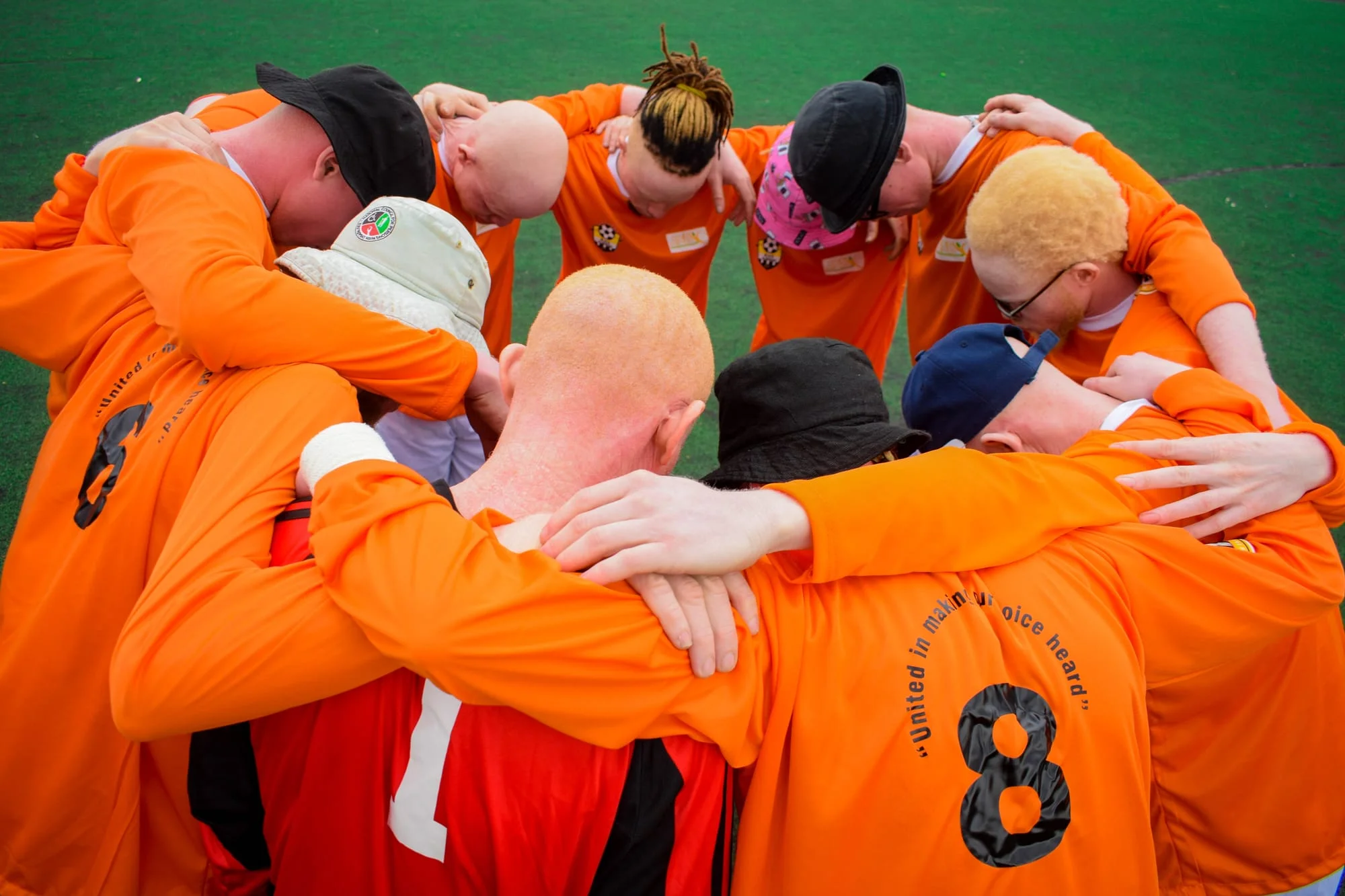LANGUAGE AND ALBINISM
Language has the power to enormously influence our perceptions, attitudes, and understanding of the world around us; moreso when talking about delicate subjects like illnesses, conditions, and disabilities. Words, which compound to language, have profound emotional and social effect as a tool of communication. Thus, diction and language should be used with utmost care lest they create a false perception, offend or hurt the target audience.
When dealing with communication surrounding People With Albinism and even the larger People With Disability community, the diction should be thoroughly scrutinized and weighed to avoid emotional and mental damage. With Albinism comes two major problematic statements; "suffering from albinism" and “living with albinism”

Screenshot from the BBCWorld article "Somalis with Albinism:Pelted with stones and raw eggs"
The BBC World news recently illuminated the plight of persons living with albinism in Somalia while including the statement “suffering from the condition”.The phrase "suffering from albinism" indicates that the condition is just but a source of pain, distress and hardship for those who have it. In fact, it single-handedly takes away from the fact that PWAs are normal people who just happen to have a genetic condition that results in very light skin and medical repercussions such as eyesight problems, which by the way some persons without albinism have as well. This portrayal ignores the rich and diverse lives that persons with albinism either lead or have the potential to lead and further overshadows the broader aspects of the individual’s identity.

The term “Living with albinism” is even more bizarre. Let us take it more literally. When we live with someone under the same roof, once they move out we do not live with them anymore, right? Or better yet, living with someone doesn’t always warrant that we will always be with the person in the same space, right? In the same tune, it is then impractical, literally and figuratively, to say a person is living with albinism or disability. One does not get to choose when to wear the albinism or disability hat . Albinism is not a piece of clothing or jewelry that is worn or removed at will. Let us be guided. A person with Albinism is not a person “suffering from albinism” or “living with Albinism”. They are simply a person with albinism.
The consequences of using the terms "suffering from" or "living with" Albinism are extensive. They maintain and perpetuate the myth and stereotype that albinism is primarily a burden, affliction and constant struggle to those who have it. While it is true that individuals with albinism face unique challenges related to their condition, it is essential not to reduce their entire identity to these challenges.
Labels matter, Labels have power. The way we communicate about people with albinism, or any other medical illness or disability, can have an impact on public perceptions and attitudes. Let us advocate for and walk the talk of more inclusive language that empowers people with albinism to define themselves on their own terms while also acknowledging the breadth of their experiences and contributions. It's time to ditch the outdated labels in favour of a more respectful and accurate manner of holding conversations around people with albinism.